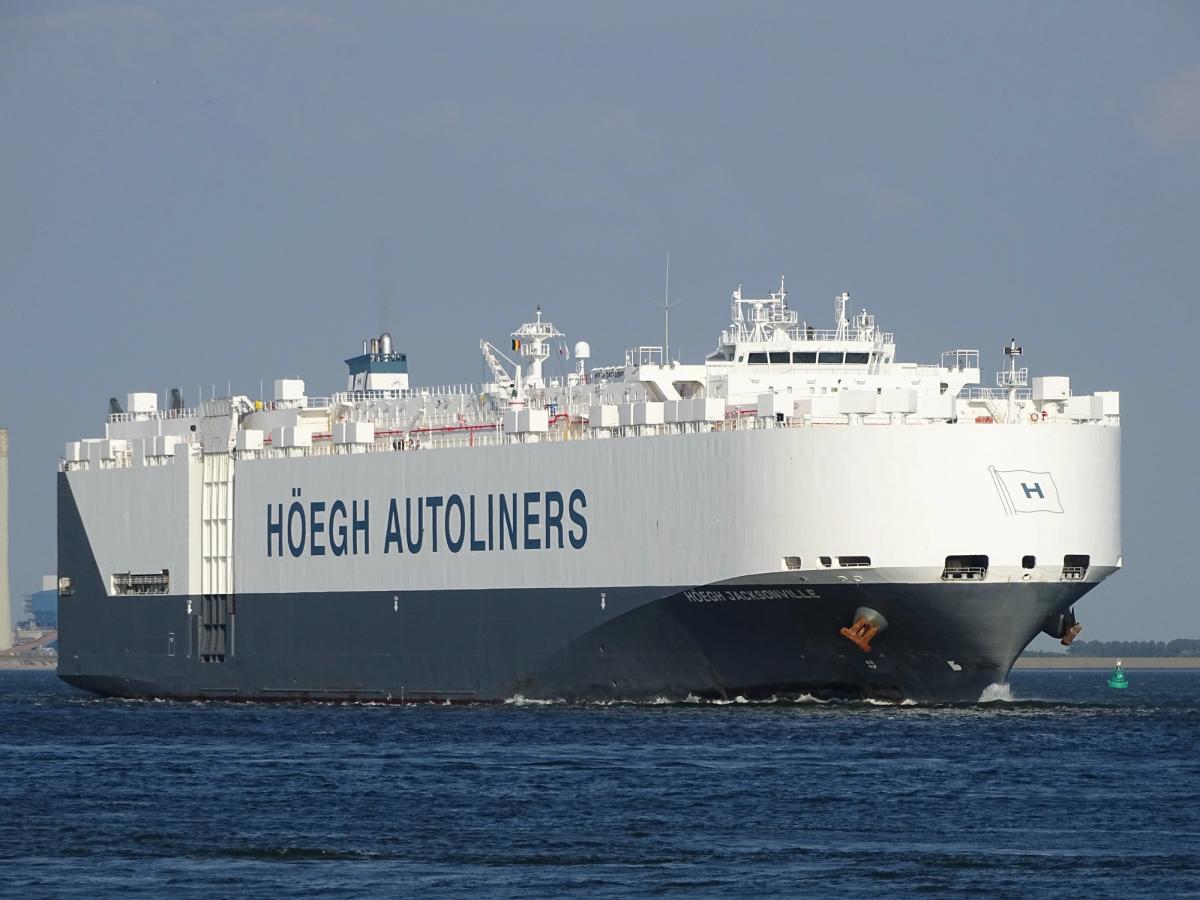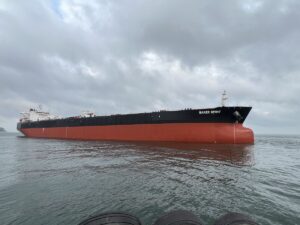Norway´s RoRo transportation provider Höegh Autoliners has reached an agreement for the sale of one of its vessels and the acquisition of another.
Höegh unveiled on Monday the sale of its Höegh Bangkok ship for a “juicy” price of $63m. The ship was constructed by Höegh at the Uljanik shipyard in 2007 and has a capacity of 6500 ceu. She is sailing under the NIS flag and is unencumbered.
The company also declared an option to purchase the vessel Höegh Jacksonville from Ocean Yield for a price tag of $43,2m.
According to the firm, the average market value of the vessel is $84m.
The ship Höegh Jacksonville was built in 2014 with a capacity of 6,500 ceu. Höegh Autoliners intends to finance the purchase price fully by mortgage debt through its fleet credit facility.
Andreas Enger, chief executive said: “The purchase of Höegh Jacksonville reconfirms our strategy of building long-term commitments with our customers based on a modern fleet which we own and control. The transaction is cash neutral, enables the realisation of value gains from our lease options, and will allow for better capacity cost control.”
As it is reported, the sale of Höegh Bangkok is in line with the company’s strategy to renew its fleet, in anticipation of the first Aurora class vessel being delivered in July 2024.
It is also said by the company that since there is no debt attached to the vessel, the transaction will increase the company’s cash balance, when the vessel is delivered to the new owner by year-end 2023.
“The transactions represent good opportunities for us to optimise our asset portfolio in preparation for the first Aurora deliveries. We will retain our focus on serving core contract customers while seeking opportunities to optimise our long-term fleet composition and capital structure,” highlights the chief executive of the company.
The shipowner will continue to operate a fleet of 36 vessels, consisting of 31 owned vessels, and 5 under long-term BB and TC leases.
Furthermore, Höegh will expand its fleet with four new Aurora multifuel vessels between July 2024 and March 2025 adding 36400 ceu of capacity, and another four Aurora vessels with another 36400 ceu of capacity by mid 2026.



